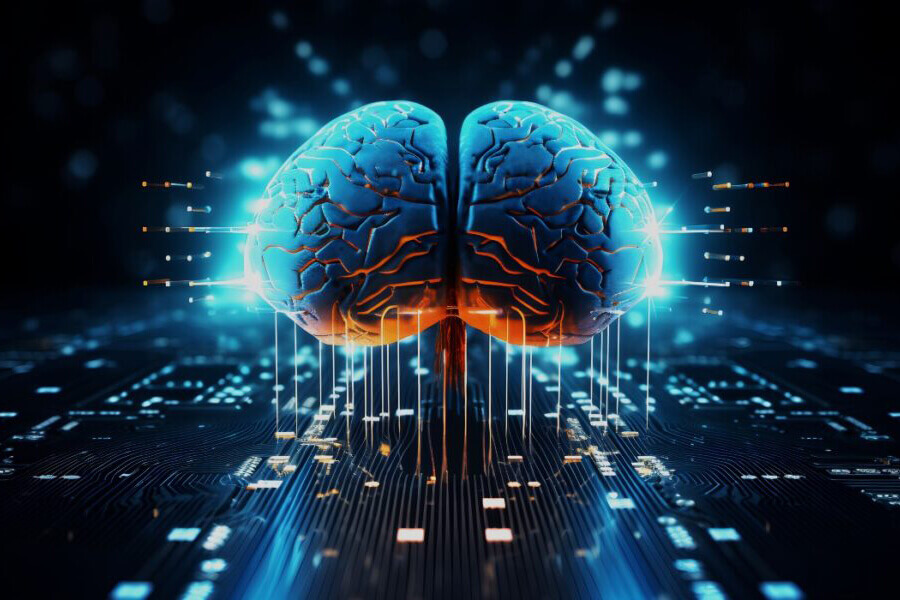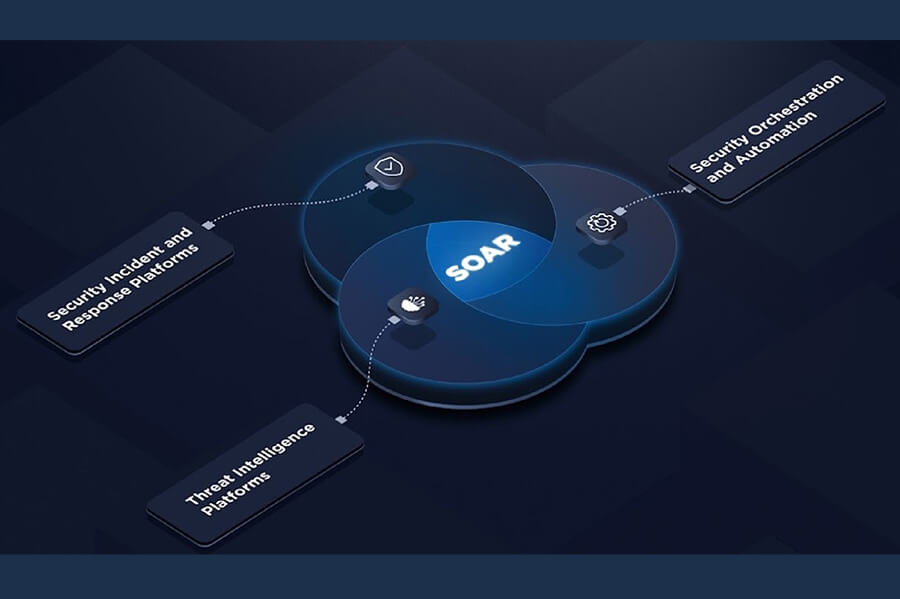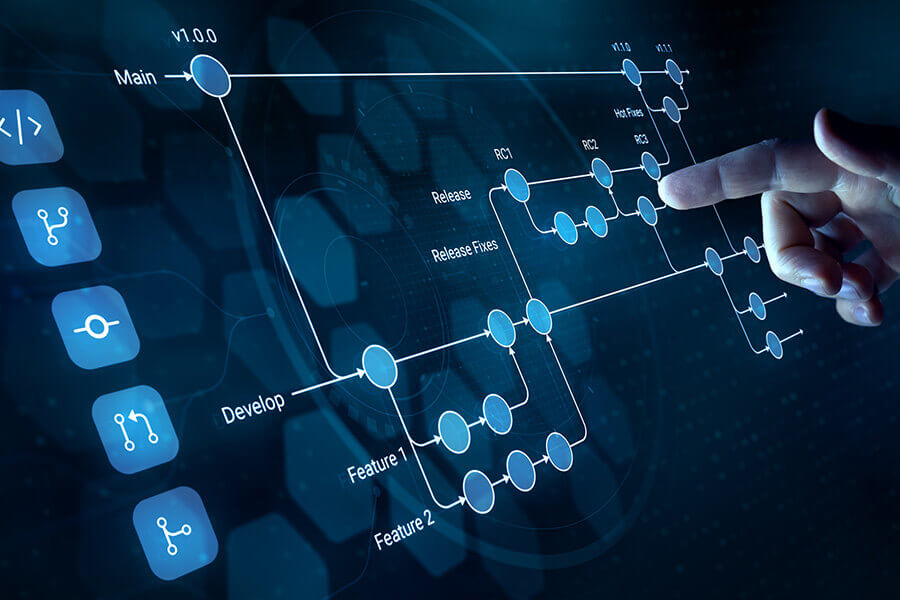“Artificial Intelligence has the potential to impact the global economy significantly. It has become a key driver of innovation, enabling businesses to gain insights, make predictions, and automate processes, resulting in improved efficiency and cost savings.” John Smith, CEO of TechCo.
Artificial Intelligence (AI) is transforming industries and revolutionizing how businesses operate in the global economy. With its ability to analyze vast amounts of data, learn from patterns, and make intelligent decisions, AI drives innovation, improves productivity, and shapes new business models.
Integrating AI technology across various sectors fuels economic growth and gives companies a competitive edge. By harnessing AI’s power, businesses can streamline operations, optimize supply chains, and deliver more personalized products and services.
AI-powered technologies are employed in finance to analyze market trends and make data-driven investment decisions. In healthcare, AI optimizes patient care by assisting in diagnosis, predicting health outcomes, and enabling personalized treatment plans. Additionally, transportation and logistics industries benefit from AI-driven systems that optimize routes, predict maintenance needs, and improve efficiency.
Moreover, AI transforms customer experience by enabling chatbots and virtual assistants to provide personalized recommendations, answer queries, and improve customer service. This, in turn, leads to increased customer satisfaction and loyalty.
This article will explore how artificial intelligence fuels innovation and drives the global economy, pushing businesses to embrace AI-driven technologies to stay competitive. From improving productivity to shaping new business models, AI has become indispensable in today’s rapidly evolving world.
Introduction
Artificial Intelligence (AI) stands out as a transformative force in a world where technology is advancing at lightning speed. It’s not just about robots and futuristic gadgets; it’s about a profound shift in how we live, work, and interact. AI is redefining industries, driving innovation, and reshaping the global economy. Let’s dive into this fascinating world and see how AI revolutionizes everything around us.
Artificial Intelligence: Unveiling the Future
Artificial Intelligence’s heart lies in a profound quest to emulate and surpass human intelligence. Through the convergence of advanced algorithms, vast data sets, and exponential computing power, AI systems can perceive, learn, and solve in ways that were once the exclusive domain of the human mind. This section delves into the foundational principles of AI, examining its origins, key concepts, and the ongoing advancements shaping this dynamic field’s future.
The Origins of AI
The origins of Artificial Intelligence can be traced back to the mid-20th century when pioneering researchers and visionaries began to explore the possibility of creating machines that could mimic the cognitive abilities of the human brain. As the field has evolved, it has given rise to various techniques and approaches, from machine learning and deep learning to natural language processing and computer vision. These innovative technologies have enabled AI systems to tackle complex challenges quickly, accurately, and efficiently.
Key Concepts and Techniques
As the frontiers of Artificial Intelligence continue to expand, the potential applications of this transformative technology are becoming increasingly diverse and far-reaching. From autonomous vehicles and smart home systems to personalized healthcare and predictive analytics, AI is revolutionizing every aspect of our lives. By harnessing the power of machine learning and deep neural networks, AI systems can extract insights, make decisions, and even generate original content in once unimaginable ways.
Machine Learning
Machine learning is a subset of AI that involves training algorithms on large datasets to recognize patterns and make predictions. The more data these algorithms process, the more intelligent they become. This is the technology behind everything from recommendation systems on Netflix to fraud detection in banking.
Deep Learning
Deep learning, a subfield of machine learning, focuses on developing artificial neural networks that mimic the human brain’s structure and functionality. These neural networks can simultaneously process large amounts of data, enabling more accurate predictions and complex analysis.
Natural Language Processing
Natural Language Processing (NLP) allows machines to understand, interpret, and respond to human language. This technology is behind virtual assistants like Siri and Alexa and language translation services.
Computer Vision
Computer Vision enables machines to interpret and make decisions based on visual data. This is used in everything from facial recognition technology to self-driving cars.
Ongoing Advancements
The future of Artificial Intelligence holds immense promise, with ongoing advancements in areas such as quantum computing, neuromorphic engineering, and general artificial intelligence. As these cutting-edge developments unfold, the potential for AI to reshape our world and enhance human capabilities becomes increasingly evident. By embracing the transformative power of this technology, we are poised to unlock new realms of innovation, efficiency, and intelligent problem-solving that will define the trajectory of the 21st century and beyond.
Quantum Computing
Quantum computing is set to revolutionize AI by providing unprecedented computational power. This will enable AI systems to solve problems currently beyond the reach of classical computers.
Neuromorphic Engineering
Neuromorphic engineering focuses on creating hardware that mimics the human brain’s architecture. This could lead to more efficient and robust AI systems.
General Artificial Intelligence
While current AI systems are designed for specific tasks, General AI aims to create machines that can perform any intellectual task that a human can do. This is the ultimate goal of AI research and can potentially transform every aspect of our lives.
AI and the Global Economy
AI is not just a technological advancement; it’s a powerful economic force. Integrating AI technology across various sectors fuels economic growth and gives companies a competitive edge. By harnessing the power of AI, businesses can streamline operations, optimize supply chains, and deliver more personalized products and services.
Economic Growth and Innovation
AI-powered systems drive innovation, optimize processes, and enhance productivity. This leads to economic growth as businesses become more efficient and can offer better products and services.
Impact on Job Market and Workforce
While AI presents numerous opportunities for economic growth, it also raises concerns about job displacement and the future of work. As AI automates routine tasks, the workforce must be reskilled and upskilled to adapt to the changing job landscape. However, AI technology also creates new job opportunities in data science, machine learning, and AI development.
AI and Ethical Considerations
The widespread implementation of AI also raises ethical considerations. It is essential to ensure that AI systems are transparent, accountable, and unbiased. Addressing algorithmic biases and data privacy concerns will build trust and mitigate potential risks.
AI in Various Sectors
The impact of AI is being felt across multiple industries, each benefiting uniquely from this technology.
Finance
AI-powered technologies are employed in finance to analyze market trends and make data-driven investment decisions.
Market Trend Analysis
AI systems can process vast amounts of financial data to identify market trends and make predictions, helping investors make informed decisions.
Data-Driven Investment Decisions
AI can analyze historical data to identify patterns and trends, providing insights that guide investment strategies.
Healthcare
In healthcare, AI optimizes patient care by assisting in diagnosis, predicting health outcomes, and enabling personalized treatment plans.
Diagnosis Assistance
AI can analyze medical data to help doctors diagnose diseases more accurately and quickly.
Personalized Treatment Plans
AI can create personalized treatment plans based on a patient’s medical history and health data.
Transportation and Logistics
The transportation and logistics industries benefit from AI-driven systems that optimize routes, predict maintenance needs, and improve efficiency.
Route Optimization
AI can analyze traffic patterns and suggest the most efficient routes for transportation, reducing travel time and fuel consumption.
Predictive Maintenance
AI can predict when vehicles or equipment need maintenance, preventing breakdowns and reducing downtime.
Customer Experience
Moreover, AI transforms customer experience by enabling chatbots and virtual assistants to provide personalized recommendations, answer queries, and improve customer service. This, in turn, leads to increased customer satisfaction and loyalty.
Chatbots and Virtual Assistants
AI-driven chatbots and virtual assistants provide personalized recommendations and improve customer service by engaging with customers in real-time.
Conclusion
Artificial Intelligence’s integration into society has ushered in a new era of innovation and transformation across various sectors. However, alongside its benefits, it is essential to address the challenges and ethical considerations associated with AI to ensure a sustainable and inclusive future.
As AI progresses, ethical considerations and job displacement become crucial factors that require careful evaluation. Embracing AI while navigating its opportunities and challenges will help us create a more intelligent, connected, and responsive future that is more intelligent and responsive to the needs of our rapidly evolving world.
This article examined AI’s economic implications, considering its benefits and challenges. As AI progresses, ethical considerations and job displacement become crucial factors that require careful evaluation.








